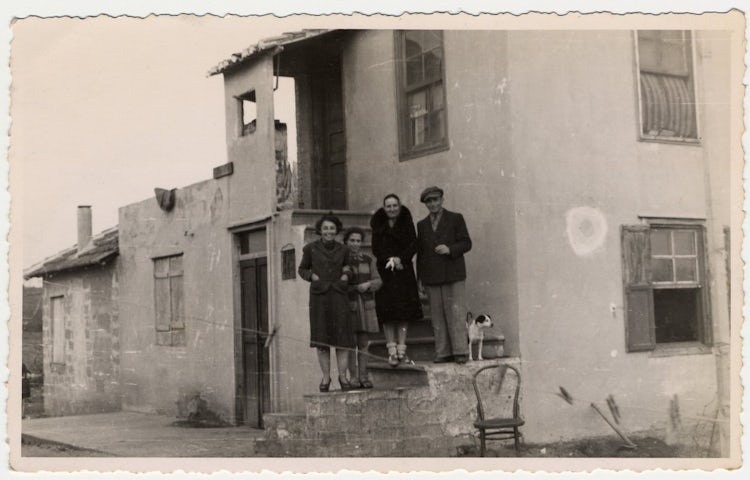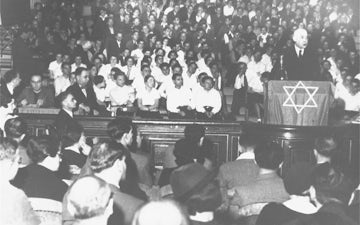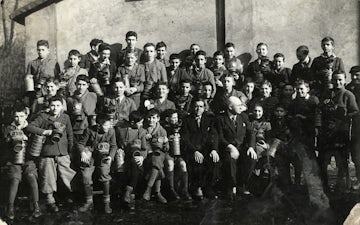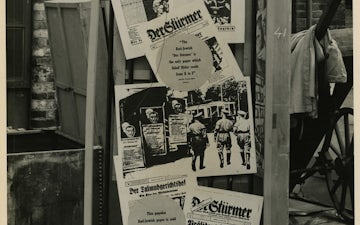
Albania was unique among the nations of Europe in having a larger Jewish population in 1945 than in 1938. This was due to a code of toleration and hospitality called Besa, meaning “to keep the promise”, which placed visitors under the protection of the local community.
In 1938, there were around 200 Jews in Albania, a tiny fraction of a total population of just 800,000 Albanians, the majority of whom were Muslim. The number of Jews increased dramatically to around 1800 as Jewish refugees from Germany, Austria, Serbia, Greece and Yugoslavia arrived, in transit to the Americas, Turkey and Mandate Palestine.
In 1939, Albania was invaded by Italy. Italy attempted to institute racial laws but did not require Jews to wear identification badges, nor were Jews prohibited from celebrating Jewish holidays. In 1941, Kosovo was incorporated into Greater Albania and the Germans demanded that the Italians hand over the approximately 500 Jews of the region. In fact, only around sixty Jews were murdered alongside a group of other prisoners identified as “undesirable aliens”. Jewish refugees were put in the so-called “fields of concentration” near Kavale, and around 100 Jewish households from Pristina were taken to Berat. Eventually, around 400 Jews, mostly refugees, were deported to Bergen-Belsen, where approximately 177 of these deportees perished.
In September 1943, following Mussolini’s fall, Albania became a German possession. The Germans demanded lists of Jews, but the Albanian authorities refused to comply. When the Germans attempted to arrest the Jews of Vlora, partisans deterred the operation by demonstrating their control of the surrounding countryside. Elsewhere, the German attempt to find Jews to deport was frustrated by the refusal of Albanians to cooperate. One of the rescuers, Lime Balla, described to Yad Vashem, the Israeli Holocaust memorial, how the Albanians hid their Jewish charges in plain sight:
We were poor – we didn’t even have a dining table – but we never allowed them to pay for the food or shelter. I went into the forest to chop wood and haul water. We grew vegetables in our garden so we all had plenty to eat. The Jews were sheltered in our village for fifteen months. We dressed them all as farmers, like us. Even the local police knew that the villagers were sheltering Jews.




